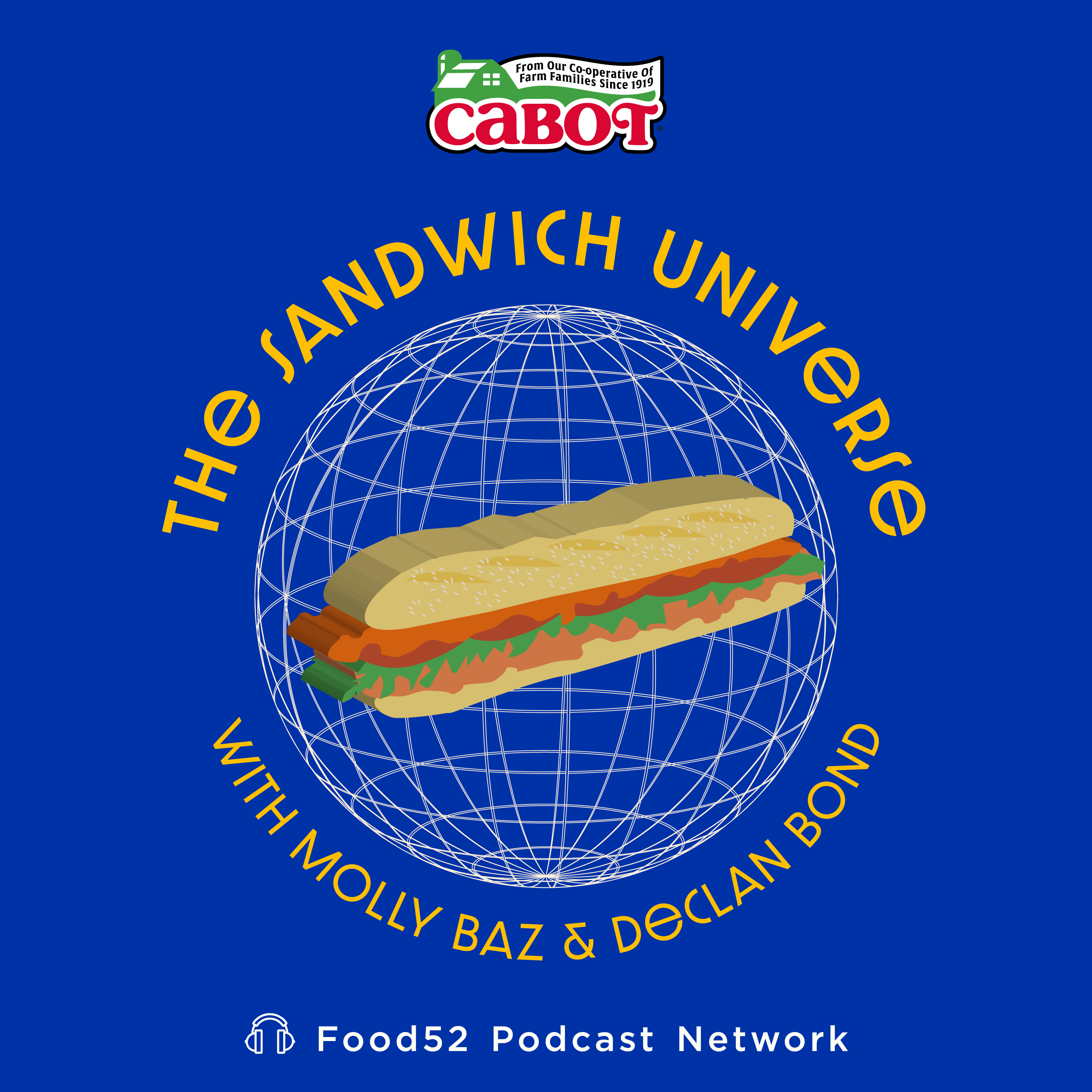
Join The Sandwich Universe co-hosts (and longtime BFFs) Molly Baz and Declan Bond as they dive deep into beloved, iconic sandwiches.
Listen NowPopular on Food52
11 Comments
Margaret
April 27, 2017
I loved this article. I felt like the author was letting me into her thinking and emotional processing about finding a forever home. The author shared the struggles of her journey to finding that bridge some of us find to connection... the well prepared meal, the cooks diplomatic passport to the heart.
niks876
April 24, 2017
What a beautiful and touching article. Although I am neither an immigrant nor Nigerian, I still powerfully identify with the way food and family embody a sense of belonging and connectedness - particularly on this type of an occasion.
Thanks for sharing your heart. I want to go try out the foods you mentioned now!
For Scott and those harsh comments - I think its amazing how the internet depersonalises. Perhaps it wasn't intended to be harsh - with the right inflections and a chuckle face-to-face, maybe it wouldnt have seemed bad. Maybe he had a bad day. Maybe the remarks really were meant to hurt (certainly seemed pretty harsh and hurtful).
Either way - I agree with the others, let us be gentler with each other.
Thanks for sharing your heart. I want to go try out the foods you mentioned now!
For Scott and those harsh comments - I think its amazing how the internet depersonalises. Perhaps it wasn't intended to be harsh - with the right inflections and a chuckle face-to-face, maybe it wouldnt have seemed bad. Maybe he had a bad day. Maybe the remarks really were meant to hurt (certainly seemed pretty harsh and hurtful).
Either way - I agree with the others, let us be gentler with each other.
milkjam
April 24, 2017
Enjoyed your article. Scott, you really to find a different way to vent your anger at those who don't conform to your standards in the use of the English language. Your comments are uncalled for.
Cyprille
April 25, 2017
Scott could be politer but a reputable site lives or dies by its sub-editing and F52 have done this author a disservice with their shonky work.
jforbess
April 24, 2017
"But I've come to realize that home is a feeling, fleeting and impermanent, like those wisps of heat swirling closer and closer to the ceiling from a heaping bowl of stew."
I wanted to highlight this observation that really resonated with me, a white woman from the midwest, whose most recently arrived ancestors probably immigrated in the 1920s. What a powerful way to put that longing that so many of us have for different reasons and at different times. Sometimes I wonder why I don't feel at home when I've lived at the same address for seven years, but you are right, it's fleeting.
I wanted to highlight this observation that really resonated with me, a white woman from the midwest, whose most recently arrived ancestors probably immigrated in the 1920s. What a powerful way to put that longing that so many of us have for different reasons and at different times. Sometimes I wonder why I don't feel at home when I've lived at the same address for seven years, but you are right, it's fleeting.
scott.finkelstein.5
April 24, 2017
Someone needs to take whoever edited this article out back and shoot him. Beyond the typos ("since they both towered over my like giants"), there is text made bold at random throughout the piece, despite there being no need for bold text at all.
Nikkitha B.
April 24, 2017
"Him" would be me. While I appreciate your pointing out my error, I think the call to violence is a little extreme, don't you think? (Or let me guess, I should be less sensitive and just take a joke?) I bolded the text I did because I thought they were either beautifully written or highlighted an underlying point. Bolding text in this way something we do throughout the site.
Kenzi W.
April 24, 2017
Hey Scott—I have to second this. That kind of language isn't welcome here. You're welcome to be constructive, but we'll take action on any comments we find to be abusive.
E
April 24, 2017
The typo did not make the article confusing to read, and the bold was a nice effect. Resorting to violent words geared specifically towards someone is so completely tasteless and crass, and absolutely not "funny." I hope your comment (and thus this thread) gets deleted.




See what other Food52 readers are saying.